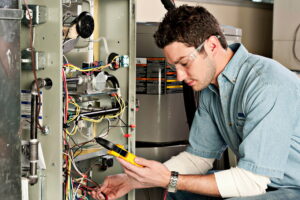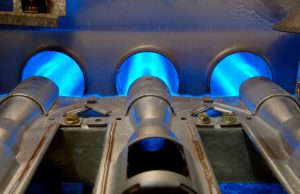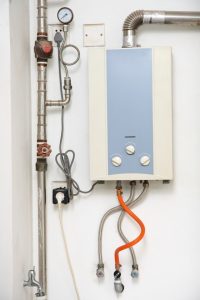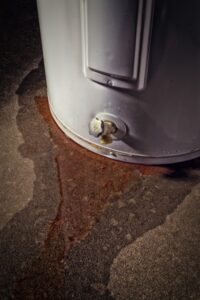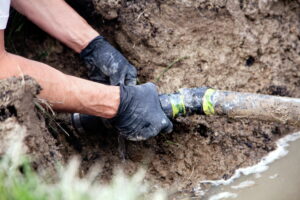Whether you have a gas or electric furnace, when it isn’t working as it should, it’s tempting to put off repairs—especially if it’s still managing to heat your home. However, ignoring furnace issues can lead to costly breakdowns, higher energy bills, and even serious safety risks. As a professional HVAC company, we’ve seen how addressing problems quickly can save homeowners from major headaches down the line. In this blog, we’ll cover the kinds of furnace repair in Dover, PA that you shouldn’t wait to schedule and why prompt action matters.
Regal Inc Blog: Posts Tagged ‘Dover’
Don’t Wait On These Furnace Repairs
Monday, December 2nd, 2024Why You Should Schedule Furnace Maintenance Now
Monday, October 21st, 2024Fall is the perfect time to schedule furnace maintenance with our team. Regular tune-ups help ensure that your furnace and HVAC system are ready for the colder months and can save you from potential headaches down the road. Maintenance improves energy efficiency and can extend the lifespan of your furnace by preventing costly repairs and maximizing performance. Let’s dive into why fall is the ideal time for furnace repair service in Dover, PA, why it is so important, and what benefits you can expect when you schedule this vital service before winter.
Why should you schedule regular furnace maintenance?
- Increases energy efficiency and reduces heating costs
- Extends the lifespan of your furnace by preventing wear
- Helps avoid unexpected breakdowns and costly repairs
- Improves safety by detecting gas leaks or ventilation issues
- Enhances indoor air quality by cleaning filters and airflow systems
Introduction to Furnace Repair and Maintenance
A well-maintained furnace is the foundation of a warm, comfortable home during the heating season. Scheduling regular furnace repair service is essential to keep your heating system running efficiently and safely, ensuring your family’s comfort when temperatures drop. Neglecting routine maintenance can lead to costly repairs, decreased energy efficiency, and even potential safety hazards. By investing in professional furnace maintenance, you not only protect your equipment but also enhance its performance and longevity. Our certified professionals use the latest equipment and techniques to deliver reliable service tailored to your heating and air conditioning needs. With our expertise, you can rest assured that your furnace and heating system will operate at peak efficiency, keeping your home warm and your energy bills in check all season long.
Bathroom and Kitchen Plumbing Services We Offer
Monday, September 9th, 2024When it comes to maintaining a comfortable and functional home, your bathroom and kitchen plumbing play a crucial role. From everyday use to unexpected repairs, these essential spaces require professional attention to ensure everything runs smoothly. As experienced and licensed plumbers, we offer a range of services to help you upgrade and maintain your bathroom and kitchen plumbing systems. Here’s a look at some of the key services we provide to homeowners.
5 Noises Your AC Shouldn’t Make
Monday, July 15th, 2024When your air conditioner is running smoothly, it tends to be relatively quiet, producing a gentle hum. However, unusual noises coming from your AC can be a clear indication that something is wrong. Ignoring these sounds can lead to more serious issues and costly repairs down the line. In this blog post, we’ll discuss five noises your AC shouldn’t make, what they might mean, and when to call us for AC repair in Dover, PA.
We offer comprehensive air conditioning services, including repairs, installation, and maintenance, making us your one-stop shop for all your cooling needs. Our reliable cooling services cover everything from expert system installation to prompt 24/7 emergency repairs, ensuring your home stays comfortable and your cooling system is managed by experienced professionals. Many air conditioning companies offer 24/7 emergency repair services, ensuring that you can get help whenever you need it most.
Signs Your Tankless Water Heater Needs Repair
Monday, June 3rd, 2024Tankless water heaters have become increasingly popular due to their energy efficiency and space-saving design. Unlike traditional water heaters with a storage tank, tankless models heat water on demand, providing a continuous supply of hot water as needed. To understand the differences and determine if a tankless unit is right for your home, learn more about what sets tank and tankless water heaters apart.
However, like any appliance, tankless water heaters are prone to wear and tear over time. Recognizing the signs of a malfunctioning tankless water heater is crucial for preventing costly repairs and ensuring an uninterrupted hot water supply. In this blog, we’ll explore the common signs that you need tankless water heater repair in Dover, PA, and potential causes and solutions.
5 Signs You Need Water Heater Repair
Monday, April 22nd, 2024Your water heater is a vital appliance in your home, providing hot water for bathing, cleaning, cooking, and other daily tasks. However, like any other appliance, water heaters can develop issues over time. The majority of water heaters have an average lifespan of 10-15 years, so it’s important to monitor the performance of your current water heater as it ages. Once your current model reaches 10-15 years, it may be time for a replacement.
Recognizing the signs of potential problems early on can help you avoid costly water heater repair in Dover, PA or even the need for a full replacement. Running out of hot water more quickly than usual can indicate that your current water heater should be replaced. Common signs of water heater failure include inconsistent water temperature, strange noises, and visible leaks. In this blog post, we’ll discuss common signs that indicate your water heater may need repair, helping you to schedule timely repairs and ensure your continued comfort and convenience.
Furnace Replacement or a Heat Pump?
Monday, March 11th, 2024
When it’s time for furnace replacement, your initial research may have brought up the possibility of replacing a furnace with a heat pump. Choosing the right heating system for your home is crucial for ensuring comfort, energy efficiency, and cost-effectiveness. Proper furnace installation is essential for optimal performance, and proper installation of both furnaces and heat pumps is critical to ensure efficiency and safety. Scheduling a furnace tune up within the first year helps address any installation-related concerns and ensures the system meets the manufacturer’s specifications. A comprehensive tune-up should also include checking and tightening electrical connections to ensure system reliability and safety. Scheduling professional furnace service for ongoing maintenance is valuable for maximizing system longevity and performance, preventing breakdowns and future repairs.
Should you replace your furnace with a heat pump?
Replacing a furnace with a heat pump can increase energy efficiency, reduce utility bills, and provide both heating and cooling in one system. Heat pumps are ideal for milder climates and quieter operation, while furnaces are better for rapid heating and very cold regions with existing gas infrastructure.
Should You Replace Your Furnace with a Heat Pump?
A heat pump uses electricity to transfer, not generate, heat, offering both heating and cooling, quieter operation, and lower emissions and energy costs. While standard models may struggle in extreme cold, cold-climate heat pumps work reliably even below zero. Furnaces heat quickly but rely on fossil fuels and cost more to operate.
With various options available in the market, it’s essential to weigh the pros and cons of each. Upgrading from your current heating system to a modern heat pump or furnace can significantly improve comfort and energy efficiency in your home. In this article, we’ll explore the merits of furnace replacement service versus heat pumps and delve into the suitability of cold-climate heat pumps for colder regions like ours here in Dover, PA. For reliable furnace replacement in York, PA, find licensed, experienced companies, and ensure they do a thorough home assessment for proper sizing. Professional services in York, PA are available to help homeowners make the right choice for their heating needs.
Understanding Modern Heating Systems
Heating systems are the backbone of home comfort during cold weather, ensuring your living space stays warm and inviting when temperatures drop. The two most common types of systems are furnaces and heat pumps. Furnaces generate heat by burning fuel, then use a heat exchanger and blower motor to distribute that warmth throughout your home. In contrast, heat pumps transfer heat from one place to another, providing both heating and cooling capabilities depending on the season.
Understanding how these systems work and the role of key components like the heat exchanger, blower motor, and other components can help you choose the best option for your heating needs. Regular maintenance, such as scheduling furnace tune-ups and checking and replacing the furnace filter, is essential for reliable heating and to prevent costly repairs. Skilled service technicians perform thorough inspections and maintenance to ensure your HVAC system operates efficiently and safely. The furnace filter should be replaced regularly according to the manufacturer’s recommendations to maintain system efficiency and indoor air quality. Neglecting to replace a dirty furnace filter can cause system strain, reduce efficiency, and increase the risk of emergency repairs. Furnace tune-ups should ideally be scheduled annually, particularly before higher demand seasons. For urgent issues, many providers offer hour heating services to deliver emergency repairs and prompt response to heating problems. By keeping your heating system in top shape, you can enjoy consistent comfort and avoid unexpected breakdowns during the heating season.
Key Features of Furnace Heating Systems
Furnaces have long been a popular choice for heating homes, primarily due to their effectiveness in cold climates. These systems work by burning fuel to generate heat, which is then distributed throughout the home via ductwork. Replacing or cleaning air filters should be done every 1-3 months as part of maintenance to ensure optimal airflow and system efficiency. These maintenance tasks should always be performed according to the manufacturer’s specifications to ensure optimal performance and safety. If you experience issues with your system, professional furnace repair in York is available to quickly and reliably address furnace problems and restore comfort.
One of the significant advantages of furnaces is their ability to quickly heat a space, making them ideal for areas with harsh winters. A reliable furnace system is essential for maintaining optimal comfort in your York home during the coldest months. If your system is starting to show signs of age, it may be time to consider whether this is your heater’s last year and start exploring your replacement options. Additionally, furnaces are widely available and familiar to homeowners, making maintenance straightforward. Proper insulation helps retain heat and reduces the workload on your furnace, enhancing its efficiency and performance.
However, there are drawbacks to consider. Gas furnaces rely on fossil fuels, contributing to carbon emissions and environmental concerns. Moreover, they tend to have lower energy efficiency compared to heat pumps, resulting in higher operational costs over time. For homeowners relying on traditional systems, learning more about different types of furnace systems can clarify how these systems compare with newer technologies. Additionally, carbon monoxide is a serious safety risk in gas furnaces, necessitating regular testing of CO detectors to ensure safety.
Common Signs Your Heating System Is Failing
Recognizing the early signs of a failing heating system is essential for maintaining a warm, comfortable home and avoiding unexpected breakdowns especially during the peak heating season. If your furnace or heat pump isn’t operating as efficiently as it once did, you may notice inconsistent or insufficient heating, higher energy costs, or even strange noises coming from the unit. These symptoms can indicate underlying issues with key components such as the heat exchanger, blower motor, or thermostat operation. A technician performs a heat load calculation (Manual J) to size the furnace for your home’s unique needs during the home assessment.
Short cycling when your system turns on and off more frequently than normal is another common warning sign. This can be caused by a malfunctioning thermostat, a failing blower motor, or other potential issues within the heating system. Uneven heating or cold spots throughout your home may point to problems with your air ducts or a compromised heat exchanger, both of which can reduce energy efficiency and increase energy consumption.
Safety should always be a top priority. If you detect a strong gas smell, it could signal a gas leak, which requires immediate attention from a qualified HVAC contractor. Scheduling a furnace tune up or heat pump maintenance with a professional ensures that your system is checked for safety hazards and is operating according to manufacturer’s specifications.
Increased energy consumption and rising energy costs are often signs that your heating system is working harder than it should to provide heating, which can lead to costly repairs and reduced efficiency. Regular maintenance, such as replacing filters and cleaning fan blades, is crucial for extending the lifespan of your system and preventing unexpected breakdowns. Many HVAC contractors offer comprehensive maintenance services for both furnaces and heat pumps, helping you achieve cost savings and reliable heating throughout the year. It’s also important to maintain your cooling system to ensure year-round comfort and optimal indoor air quality, as both heating and cooling components are essential parts of your home’s HVAC system.
If you notice any of these warning signs, don’t wait for a complete system failure. Contact an experienced HVAC contractor to diagnose and address the issue promptly. Upgrading to a newer, energy-efficient model such as an air source heat pump or a ground source heat pump can provide reliable heating and cooling, reduce waste heat, and lower your environmental impact. Many energy-efficient systems qualify for tax credits or incentives, especially those with Energy Star certification, making the investment more affordable and offering long-term cost savings.
By prioritizing regular maintenance and addressing potential issues early, you can ensure your heating system operates efficiently and safely, providing warm space and hot water when you need it most. Taking proactive steps now will help you avoid costly repairs, reduce your energy consumption, and enjoy peace of mind throughout the heating and cooling seasons. Professional HVAC contractors proudly serve the entire York area, offering expert heating and cooling repairs, upgrades, and maintenance tailored to local homeowners.
Why a Heat Pump Might Be Right for You
Heat pumps offer an alternative heating solution that has gained popularity in recent years, especially in moderate climates. Unlike furnaces, heat pumps utilize electricity to transfer heat from one place to another, rather than generating heat through combustion. Air source heat pumps are a common type that can provide heating and cooling by transferring thermal energy between the indoors and the cool outdoors. This process allows heat pumps to provide both heating and cooling, offering versatility and year-round comfort. Integrating a whole house humidifier with your HVAC system can further improve indoor comfort by maintaining optimal humidity levels throughout your home. If you’re unsure which system is best for your home, start by comparing whether a heat pump or a furnace is the better option based on your climate and usage needs.
One of the most significant advantages of heat pumps is their energy efficiency. By leveraging ambient heat from the surrounding environment, heat pumps can deliver impressive heating performance while consuming less energy. The reversing valve in a heat pump system allows it to switch between heating mode and cooling mode, depending on the thermostat setting and outdoor temperature. During the heating cycle, heat pumps extract heat from the cool outdoor air and transfer it to the warm space inside the home, while in cooling mode, they remove heat from the cool space indoors. Additionally, heat pumps operate more quietly and produce fewer greenhouse gas emissions compared to furnaces.
Air-to-water heat pumps can provide heating via hot water for radiant floor systems or radiators, adding to their versatility. The thermostat plays a crucial role in managing heating and cooling cycles, ensuring optimal comfort and efficiency. Upgrading your water heater at the same time as your heat pump can enhance overall home efficiency and provide more reliable hot water for your household.
However, a standard heat pump may not be the best choice for areas with extreme cold climates. In such regions, it may struggle to extract sufficient heat from the air, leading to reduced efficiency and comfort. Furthermore, heat pumps typically have higher upfront costs compared to furnaces, although they offer long-term savings through lower energy bills. To understand the performance differences, this guide on choosing heat pump or furnace offers helpful insights.
Heat Pump Performance in Winter
For homeowners in colder regions, cold-climate heat pumps present a viable solution that addresses the limitations of standard heat pumps. These advanced systems are specifically designed to perform efficiently in sub-zero temperatures, making them suitable for use in areas with harsh winters. If you’re looking into a new system this season, take time to review your heating installation options with a qualified technician to ensure your new unit delivers reliable warmth all winter long.
Despite their advantages, cold-climate heat pumps may require a higher initial investment compared to standard heat pumps. However, the long-term benefits, including lower energy bills and reduced environmental impact, often outweigh the upfront costs. If you’re considering an upgrade, now is a smart time to book seasonal furnace maintenance service or evaluate alternative heating solutions before the peak of the season.
We understand the importance of choosing the right heating system for your home. Our team of experts is here to help you evaluate your options and find the solution that best suits your needs. Contact us today to learn more about furnace replacement service, heat pumps, and cold-climate heat pump technology.
Air Conditioning and Cooling: Year-Round Comfort
At Regal Inc., we know that true home comfort means more than just staying warm during the colder months, it’s about enjoying a perfectly balanced indoor environment all year long. That’s why we offer comprehensive heating and cooling solutions for York, PA homeowners, ensuring your house remains cozy in winter and refreshingly cool in summer. Our highly skilled technicians, including Regal Inc. employees, are dedicated to providing exceptional service for every aspect of your HVAC system, from expert installation to routine maintenance and timely repairs.
Our air conditioning and cooling services are designed to keep your AC systems running efficiently, no matter how high the temperatures climb. We specialize in air conditioning installation, repair, and maintenance, as well as the inspection and cleaning of air ducts to promote optimal indoor air quality. For homes seeking greater control and efficiency, our zone control systems allow you to customize temperatures in different areas, maximizing comfort while minimizing energy use.
We understand that a reliable HVAC system is essential for your family’s well-being. That’s why we offer comprehensive furnace maintenance services, heat pump installation and repair, and expert solutions for ductless systems, water heaters, and whole-house humidifiers. Our maintenance plans are tailored to prevent breakdowns and future repairs, with regular tune-ups, seasonal maintenance, and annual maintenance to keep your system working properly and running efficiently. Regal Inc. offers 24/7 emergency support for HVAC services.
At Regal Inc., customer satisfaction is our top priority. We are the only company in the York, PA area offering such a wide range of HVAC services at a reasonable price, delivered by a team of highly skilled technicians committed to providing exceptional service. Whether you need furnace repair, air conditioning installation, or a new system expertly installed, you can trust us to get the job done right.
Furnace vs. Heat Pump Energy Efficiency Compared
When it comes to energy efficiency, heat pumps have a clear advantage over traditional furnaces. Unlike furnaces, which burn fuel to create heat, heat pumps transfer heat from the air or ground, allowing them to provide the same level of warmth while using less energy. Air source heat pumps are especially popular because they are relatively easy to install and can efficiently handle both heating and cooling for your home. For even greater efficiency, ground source heat pumps use the stable temperature of the earth to transfer heat, making them an excellent choice for homeowners looking to minimize energy consumption.
Choosing an efficient heating system can lead to significant savings on your energy bills and reduce your environmental footprint. By understanding the differences in how these systems operate, you can select the best option to meet your heating and cooling needs while maximizing energy efficiency.
Heating System Costs: Initial and Ongoing
Cost is a major factor when deciding between a furnace and a heat pump. Furnaces often have a lower upfront price, making them an attractive option for homeowners on a budget. However, they can be more expensive to operate over time due to higher energy consumption. Heat pumps, while typically more costly to purchase and install, offer substantial cost savings in the long run thanks to their energy-efficient operation. Obtain detailed, written estimates from 2-3 companies to compare costs, equipment, and warranties for furnace replacement service.
Many HVAC contractors provide financing options and can help you take advantage of available tax credits for energy-efficient heating systems, making the initial investment more manageable. Don’t forget to factor in the cost of regular maintenance, such as furnace tune-ups and filter replacements, which are essential for keeping your system running efficiently and avoiding costly repairs. By considering both the upfront and long-term costs, you can make a smart investment in your home’s comfort and efficiency.
How Your Heating Choice Affects the Environment
The environmental impact of your heating system is an important consideration for today’s homeowners. Heat pumps stand out as a more environmentally friendly option because they don’t burn fuel and produce fewer emissions compared to furnaces. Additionally, heat pumps can be powered by renewable energy sources like solar or geothermal energy, further reducing their environmental impact.
When evaluating your options, look for energy-efficient systems that carry the Energy Star certification, which indicates they meet strict efficiency and environmental standards. While the manufacturing and disposal of heat pumps can have some environmental effects, choosing an energy-efficient heating system can significantly lower your home’s carbon footprint and contribute to a cleaner environment.
Talk to an HVAC Expert Before You Decide
Selecting and installing the right heating system is a decision best made with the guidance of a qualified HVAC contractor. Professional HVAC contractors can assess your home’s unique needs, recommend the most energy-efficient and reliable heating and cooling solutions, and ensure your system is installed and operating according to manufacturer’s specifications. Verify that the company and its technicians are fully licensed, certified, and insured for furnace replacement service. Professional service ensures safety by checking for gas leaks or faulty components, providing peace of mind for homeowners.
When choosing a contractor, look for certifications from organizations like Energy Star and ask about their experience with heat pumps and other energy-efficient systems. By working with a trusted professional, you can be confident that your heating system will provide reliable comfort, operate efficiently, and help you save on energy costs for years to come.
Frequently Asked Questions
Question: What are the main differences between a furnace and a heat pump?
Answer: A furnace generates heat by burning fuel or using electricity, making it ideal for colder climates. A heat pump transfers heat from outside to inside and can also cool your home, offering energy efficiency but potentially reduced performance in freezing temperatures.
Question: What are the pros and cons of installing a furnace?
Answer: Furnaces are effective in extreme cold and typically have lower upfront costs. However, they rely on fossil fuels and can be less energy-efficient over time. They also require regular maintenance to ensure safe operation and prevent carbon monoxide risks.
Question: What advantages do heat pumps offer over furnaces?
Answer: Heat pumps are more energy-efficient and can both heat and cool your home. They produce fewer emissions and lower monthly energy bills. While they cost more to install, they work best in moderate climates and offer year-round comfort.
Question: Are heat pumps effective in cold places like Pennsylvania?
Answer: Yes, modern cold-climate heat pumps are built to perform well even in Pennsylvania winters. When properly installed and maintained, they offer efficient and consistent heating without relying on fossil fuels.
Question: Can I use both a furnace and a heat pump together?
Answer: Yes, a dual-fuel system combines both. The heat pump runs during milder weather to save energy, while the furnace activates in colder temperatures to provide stronger heating. This setup balances comfort and efficiency year-round.
Contact Regal Plumbing, Heating and A/C to schedule an appointment for furnace replacement in Dover, PA. Committed to Service, Committed to You, Since 1974.
What to Know About Maintaining Your Main Water Line
Monday, January 15th, 2024As a homeowner, there are steps that you can take to help maintain the water line that leads into and away from your home. Small steps can add up quickly to have a big impact – either positive or negative – on the plumbing lines in and around your home.
You can keep reading to learn more about some of the positive changes you can make to help care for your main water line and lessen the chances of needing repairs. Of course, when you do need to schedule service for main waterline repair in Dover, PA, you can give our team a call to schedule an appointment. Even if you don’t know what’s wrong with your main waterline, our team can troubleshoot and figure it out so that we can fix the problem.
How to Know There’s a Gas Leak in Your Home
Monday, December 4th, 2023Having gas service at your home is extremely beneficial. However, gas lines do come with risks, and one of those risks is a gas leak. The problem with gas leaks is that they are often colorless and odorless, making them difficult to identify.
When you do suspect that you have a gas leak, you need to schedule service with a gas line plumber in Dover, PA right away. You can keep reading to learn more about some signs that can indicate you have a gas leak. We’re also highlighting some key safety tips that can help keep your family protected from a gas leak now and into the future.
Bad Odors
One of the easiest ways to identify a gas leak is by paying attention to unusual odors coming from your furnace. While gas does not usually have any smell, some gas service providers will add an odor that smells similar to rotten eggs in an effort to make it easier to identify gas leaks.
It’s also possible that exhaust air mixing in with the clean air in your home can indicate a gas leak. If something is wrong with your furnace and allowing exhaust air into your home instead of outside, there’s a good chance you also have a gas leak somewhere.
Houseplants Dying
If you have house plants that are wilting or dying without any explainable reason, it may be a gas leak. You may be tempted to shrug it off as watering your plant too much or too little, but it is important to consider the alternative.
Hissing or Bubbling Sounds
A gas leak may result in either hissing or bubbling sounds as the gas escapes the line. The sound depends on the size of the hole and the amount of pressure that the gas is under. High pressure may result in a hissing sound, while lower pressure may result in a bubbling sound.
Gas Usage
You also want to pay attention to your monthly gas bill to watch for signs of a leak. If you notice your gas usage steadily creeping up or you notice a large jump in usage at one time, this could be because of a gas leak. Of course, if you have gas appliances that you only run during the winter like a furnace, that could be one reason to see an increase in gas usage.
If you have concerns about a potential gas leak, give our team a call to schedule service. We can check your gas lines in the rest of your furnace to make sure that everything is secure with no obvious issues. If something is wrong, we can fix the problem and prevent it from happening again.
Contact Regal Plumbing, Heating and A/C to schedule an appointment for gas line services. Committed to Service, Committed to You, Since 1974.
Should I Get a Heat Pump or a Furnace?
Monday, October 9th, 2023If you are ready to invest in a new heating system for your home, you may be wondering what option is best for your family. Heat pumps and furnaces are both popular choices for various reasons. Neither system is significantly better than the other. Instead, it really depends on your individual needs.
Should you install a heat pump or a furnace?
A heat pump is ideal if you want energy-efficient heating and cooling in one system, especially in milder climates with lower energy costs. A furnace is better for homes in colder areas where fast, powerful heat is needed or where gas or electric infrastructure already exists.
Furnace vs. Heat Pump: Which Should You Choose?
A furnace, whether gas or electric, heats your home quickly—gas uses combustion, while electric relies on heating elements—making maintenance like tune‑ups and carbon monoxide detector checks especially important. A heat pump, on the other hand, transfers heat instead of generating it and offers both heating and cooling in one, though its effectiveness in extreme cold can vary.
You can keep reading to learn more about your options for heating installation in Dover, PA. Then give our team a call to schedule your in-home assessment. We can help review your options and make a recommendation based on your unique needs.

